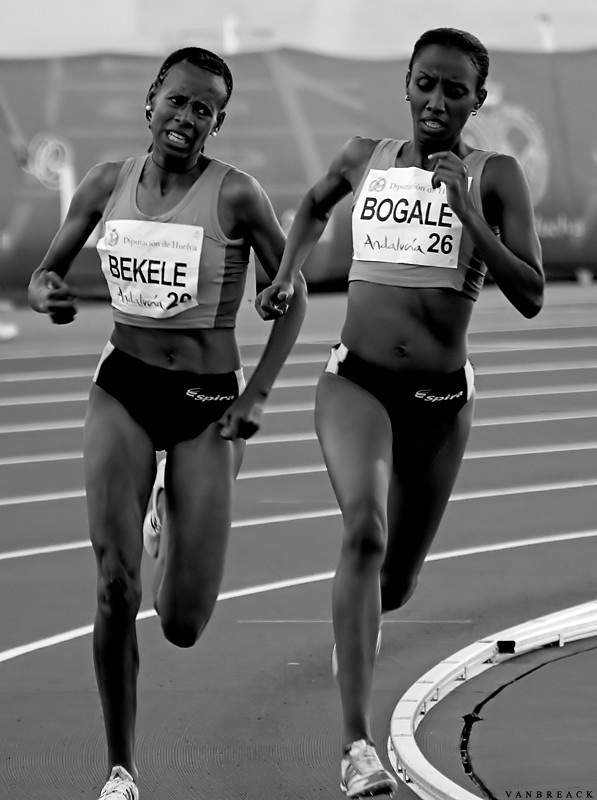 |
| Genzebe Dibaba, the youngest of a stunning dinasty http://www.juventudrebelde.cu/multimedia/fotografia/generales/genzebe-dibaba/ |
That cold spring morning of 2008, in Edinburgh
Four years have passed since that revelation and now
Genzebe Dibaba, after her victory at the World indoor championships in Istanbul last winter and her recent groundbreaking
demonstration at the Diamond League meeting in Shanghai ,
appears as the most solid prospect for Olympic gold in team Ethiopia Kenya Ethiopia
Nevertheless,
contrary to their East African neighbours, the country which owns eight Olympic
titles in the 10.000m has little tradition in the 800m and the 1500. In the first Olympic
Games they took part in, back in the 1960s, both Kenya
and Ethiopia Nairobi Kenya
is likely to qualify its 4x400m relay for London ,
after a long hiatus, and amazingly will also send Julius Yego, first national
representative ever in the Olympics in the javelin discipline, who recently
returned from a training camp in Finland
 |
| Fantu Magiso at the 2012 World indoor Championships in Istanbul Photo: Ian Walton/ Getty Images Europe http://www.zimbio.com |
If Ethiopia Osaka Jelimo , Kenya Uganda Madison
Square Garden Doha
 |
| Tizita Bogale and Asmerawork Bekele clash in a meeting in Huelva http://www.flickr.com/photos/vanbreack/4835704034/ |
Nonetheless, it may
be tough for Fantu Magiso to shine in London Olympics in an 800m contest so
loaded of scintillating stars, including Olympic champion Pamela Jelimo,
happily returned to where she used to be after some difficult seasons, the last
two world champions Caster Semenya and Mariya Savinova, and Janeth Jepkosgei, who
has been in every major championship podium since 2007. Much more up to
surprises is currently the 1500m event. In the last couple of years the
discipline has lacked a leader, a dominator. A reason is the four best athletes
of the world middle distance powerhouse, Russia Russia Berlin United
States Berlin
but in the end it was another US Berlin
The female 1500
event is nowadays experiencing a crisis of leadership and results. However, the
discipline is on the rise in East African countries. Pioneers like Derartu Tulu
spread the example and now Kenyan and Ethiopian women are massively practising
sport and also entering virgin territory, embracing new disciplines. Helen
Obiri, who broke Meseret Defar’s streak at the 3000m in World indoors last
winter in Istanbul Lille
 |
| Kalkidan Gezahegne, the world indoor champion in 2010 http://indoortrackandfield.files.wordpress.com/2011/02/dsc_0096.jpg |
Nevertheless,
Ethiopian women are by far the most impressive currently among East Africans.
When Derartu Tulu, Gete Wami and Fatuma Roba were making the highlights in the
10.000 and the marathon, the lone standout of the country in the 1500m was
Kutre Dulecha. This athlete enjoyed a noteworthy athletic career in the late
1990s and early 2000s, achieving a gold medal at the 2004 World indoor
championships and a bronze outdoors in Seville
Kalkidan Gezahegne,
already a finalist at the 2009 World Summer Champs, solved the animosity the
incident between Natalia Rodríguez and Gelete Burka in Berlin
had created, beating both of them at the World indoors in Doha
In 2012, all
Gezahegne, Aregawi and Bogale, as good as they are, have been overshadowed by
the stellar campaign of Genzebe Dibaba. With two world titles in Cross Country
and one on the track as a junior, Genzebe had not however deliver in her first
senior competitions in the same impressive fashion her elder sisters Eyegayehu
and Tirunesh did in the past. Being just 18, she was a good 8th in 2009 in Berlin Istanbul Beijing